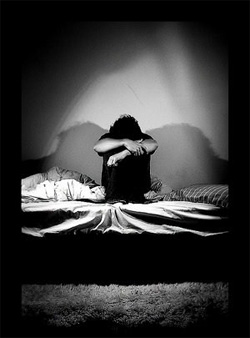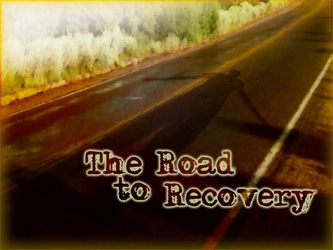Relapse: Mental Illness Relapse and Recovery
R.E.L.A.P.S.E. Seven letters. Just seven. This seems impossible: the experience of mental illness relapse requires millions of words. As many words as the emotions it evokes, the pain it causes and the feeling that, you, that I, cannot escape. The fear of mental illness relapse isn't lessened by knowing recovery will follow.
Writing About Mental Illness Relapse
 I like my blogs to reflect both my experience and what I believe others can relate to. Mental illness is, after all, a shared condition. Although our diagnosis, level of recovery and treatment are distinctly different, commonalities exist. Feelings about the diagnosis, emotions surrounding it, and the treatment involved. In the end: we all work to maintain stability. Above all, we work hard to accept our illness.
I like my blogs to reflect both my experience and what I believe others can relate to. Mental illness is, after all, a shared condition. Although our diagnosis, level of recovery and treatment are distinctly different, commonalities exist. Feelings about the diagnosis, emotions surrounding it, and the treatment involved. In the end: we all work to maintain stability. Above all, we work hard to accept our illness.
I feel responsible, as the writer of this blog, to offer information that can help people. I recognize that I have bipolar disorder, struggle with addiction and anxiety, but usually, I remain stable. Because of this I feel comfortable talking about my experience, my journey to wellness. But I have a chronic mental Illness and it does not care if I write a blog entitled Recovering from Mental Illness. It has it's own agenda. Sometimes, and when I least expect it, it steals me away.
What am I trying to say? I am not feeling so great. I am finding it hard, at this moment, to give advice when I feel I need some myself. I feel, in some strange way, disingenuous. How can I help you if I am having trouble helping myself? I have come to the conclusion that writing about my own struggle, when it occurs, does not discredit me. It makes it real: I suffer as many of you do. I understand.
Recognizing Mental Illness Relapse
A few weeks ago, I wrote about stress. I mentioned the impact it was having in my life. Specifically, I suggested ways in which we can identify the symptoms in order to stop relapse. Despite our, my best intentions, it does not always work. The brain is complex; mental illness is complex. It does not wait for you to finish things in your life. You cannot ask it to give you a few months to tie up some odds and ends.
Often, life changes can negatively affect mental health. You can do everything you should; sleep, eat, take your medication, ask for support. You can pray, even if you are not religious, that your life will not fall apart. It's never good timing. It is never good.
I took my own advice. I tried. But the end of a three year relationship brought me to my knees. Depression. I tried to scratch my way out. I convinced myself that I was perfectly fine. It was hard to differentiate whether or not the abrupt change in my life, my reaction to it, was normal or symptoms of relapse.
The Reality of Mental Illness Relapse
Well, it isn't what I wanted. It is frightening. Confusing. Walking through the day, doing what I usually do: writing, cleaning, walking my dog. But I find myself in bed. I am either crying or to numb too muster tears. I have to force food down. I try to explain this to my parents who worry. They ask me, "Why are you starving yourself?" I say, "Imagine eating a huge turkey dinner and then having to eat two more." It is not with intent. It is a sign that something is wrong. But I understand their fear: years of eating disorders, having been recovered for ten years, they still worry. But it's the depression.
Learning the signs of relapse are important. It can save your life. It's often the basics: a change in sleep, appetite, energy, a mind that moves too quickly or slowly. Agitation. Isolation. And I am good at this one: I lock the door, I hide in bed, I turn the phone off. Thankful I have a dog that needs to be walked. Without him, well, I don't think I would leave my home.
Recovering From Mental Illness Relapse
 You might wonder, "How can she write about recovery?" And I can tell you that I can because I have been here before. I know I will get better. Back on my feet. When I was first diagnosed, if I fell ill, I was certain I would never recover. The world would always remain black.
You might wonder, "How can she write about recovery?" And I can tell you that I can because I have been here before. I know I will get better. Back on my feet. When I was first diagnosed, if I fell ill, I was certain I would never recover. The world would always remain black.
Having some experience with my illness, fourteen years of it despite being twenty-six years old, I understand that getting on top of this, visiting my psychiatrist and letting people in, will make it possible for me to write these blogs with a clear head. But it's hard. It hurts.
I could have written about something else; not about my life as it is now. But I think it's important for me to express that I struggle too. My struggle, my recovery, is what allows me to lend my experience. It makes the person behind the screen real.
And relapse, recovery, it's part of the job. Part of maintaining stability--as the title of this blog suggests, Recovering from Mental Illness, is a journey and I am walking it beside you and, I hope, you beside me.
APA Reference
Jeanne, N.
(2011, December 12). Relapse: Mental Illness Relapse and Recovery, HealthyPlace. Retrieved
on 2026, March 5 from https://www.healthyplace.com/blogs/recoveringfrommentalillness/2011/12/relapse
Author: Natalie Jeanne Champagne
Thank you for writing this. It was beautifully written. My son struggles with mental illness and has just relapsed also, the week before his high school graduation. Thank you again for your blog. Thinking of you. ❤
Well put. Mental illness to me should be called invasion of body snatcher. I'm not me when I relapse and I scare myself with a foreign brain and feel so out of place like a sore thumb. I don't know what mental wellness would encompass it's either sick or sicker. I get discouraged and feel so alone. Thank you for shedding light on a grand scale malady.
Hi, Jesse:
I agree with you---mental illness can be isolating, to say the least, and make us feel like we do stick out like a "sore thumb." But we can work to get to a place where we are more stable and feel less alone. It's a journey for all of us--hang in there.
Natalie
Natalie,
This is such a well-written article. I've fought with clinical depression (and with it, a host of other diagnoses) for almost my whole life, fought hard in therapy, and seemed to have recovered...only to find it short-lived. In the last few months things have happened that made me crushed and bitter. Soon, I felt the old emotions coming back. It scares me, because I didn't want to go back to that pit of hell. Someone told me to never think that a relapse is even going to happen. But will denial help?
As much as I want to live a relapse-free life, the reality is that recovery doesn't make us immune. In fact, relapse only makes us more human. My ex-therapist reminded me that relapse is only part of recovery. You're right - having experienced freedom once before, makes recovery from this relapse a little less hopeless. I know that if I keep hanging on, if I know how to seek the right help...I can get back up again.
Keep hanging on. You'll probably experience many many relapses, but as long as you keep picking yourself up again, you can still experience recovery.
Hi, Jasmine:
Thank you for the kind words. Don't dwell on relapse--just check in with your doctor. You seem to have a fantastic perspective on the illness and that's really important.
Sincerely,
Natalie
Alistair and mef,
I really appreciate these comments. I was not sure how the post would be received but I felt, at that time, honesty was the best I could do.
Sincerely,
Natalie
I hope you feel better. I'm glad you wrote this, it does make you real. I know I'm not alone. I am feeling good right now but I think I may be feeling too good but I try not to think that because I do feel so good. I'll have to keep an eye on it though. I do hope you feel better real soon.
Michele
Natalie: Sharing the truth of your struggle will certainly be an inspiration to others and a way for you to get out of the ditch you're in now. You are brave, even heroic, to be so open and honest. - Those of us in this game for the duration know that relapse - though not fun - is simply just another part of the puzzle. The good news is that, every time it happens you are better equipped to recover. (This is not true for quitting drugs and alcohol, by the way. In that case, every relapse decreases the likelihood of a successful return to mental health.) Stay tough, buddy - Alistair